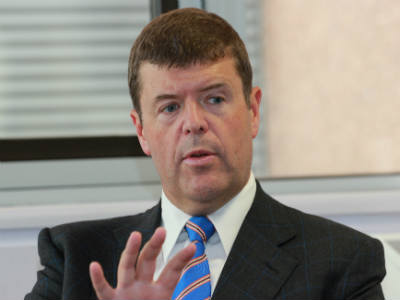
A government project to boost the provision of talking therapies for young people will “rewire” the way children and adolescent mental health services are delivered, according to ex-care services minister Paul Burstow.
Burstow, who was replaced as care services minister in the recent cabinet reshuffle, told Community Care that extending the improving access to psychological therapies (IAPT) programme to young people’s services was one of the projects he is “most proud of” from his time in government.
Burstow believes that the £22m cash injection secured for the programme during his time at the Department of Health (DH) will help ensure that young people in two-thirds of the country can access talking therapies by 2015. He said the DH had worked with charities and young people “to design from the bottom a programme that rewires the way Camhs (child and adolescent mental health) services work.”
A ‘fragile new service’
But Burstow warned that ministers and professionals needed to support IAPT to establish itself as a key part of mental health treatment during the early stage of its development. He said that having left his ministerial role he will lobby the coalition to “make sure IAPT continues to be nurtured during its infancy”.
“It is very vulnerable because it’s a fragile new service. And yet we know that if we do that well, and other aspects of support for families are done well, two in every five adults with enduring mental health problems need never have suffered,” he said.
“And the reason for that is that half of all mental health problems can be traced back to adolescence. It’s a hugely important programme but the danger is that it doesn’t get enough traction early enough.”
Spending cuts and service closures
Burstow admitted that, despite coalition pledges to protect frontline services, there had been a “crude cutting of services” in some areas. He said other areas had made cost savings through innovation and shifting services to the community.
A Department of Health report released in August revealed a 1% cut in real terms public spending on mental health – the first time spending had fallen in 10 years. But Burstow defended the government’s record on mental health and insisted the overall 1% reduction in spending on services was “remarkably small” compared to past spending cuts.
The need for early intervention
The ex-care services minister also called on the mental health system to shift to providing more preventative work.
“The key thing for mental health is that the system has been stuck for too long managing the immediate presenting problems of a large number of people with mental health problems today, particularly in the adult population,” he said.
“The system is very focused on addressing that part of the working population with an agenda around getting people back to work which is all very laudable. But it doesn’t address the more fundamental issue of how you prevent people developing mental health problems in the first place.”
Social care leaders have previously said that a focus on early intervention and prevention is “laudable” but questioned whether it is achievable in a time of belt tightening across health and social care services.
In July Faye Wilson, chair of BASW’s mental health reference group, said:
“The government’s mental health strategy says intervene early, intervene with communities, and intervene with children. That’s laudable and absolutely right. But with no additional resources? Amid all the cuts, how do you balance early intervention while still intervening at the top end?”


 Bournemouth, Christchurch and Poole
Bournemouth, Christchurch and Poole  Hampshire County Council
Hampshire County Council  Lincolnshire County Council
Lincolnshire County Council  Norfolk County Council
Norfolk County Council  Northamptonshire Children’s Trust
Northamptonshire Children’s Trust  South Gloucestershire Council
South Gloucestershire Council  Wiltshire Council
Wiltshire Council  Wokingham Borough Council
Wokingham Borough Council  Children and young people with SEND are ‘valued and prioritised’ in Wiltshire, find inspectors
Children and young people with SEND are ‘valued and prioritised’ in Wiltshire, find inspectors  How specialist refugee teams benefit young people and social workers
How specialist refugee teams benefit young people and social workers  Podcast: returning to social work after becoming a first-time parent
Podcast: returning to social work after becoming a first-time parent  Podcast: would you work for an inadequate-rated service?
Podcast: would you work for an inadequate-rated service?  Family help: one local authority’s experience of the model
Family help: one local authority’s experience of the model  Workforce Insights – showcasing a selection of the sector’s top recruiters
Workforce Insights – showcasing a selection of the sector’s top recruiters 

 Facebook
Facebook X
X LinkedIn
LinkedIn Instagram
Instagram
Comments are closed.